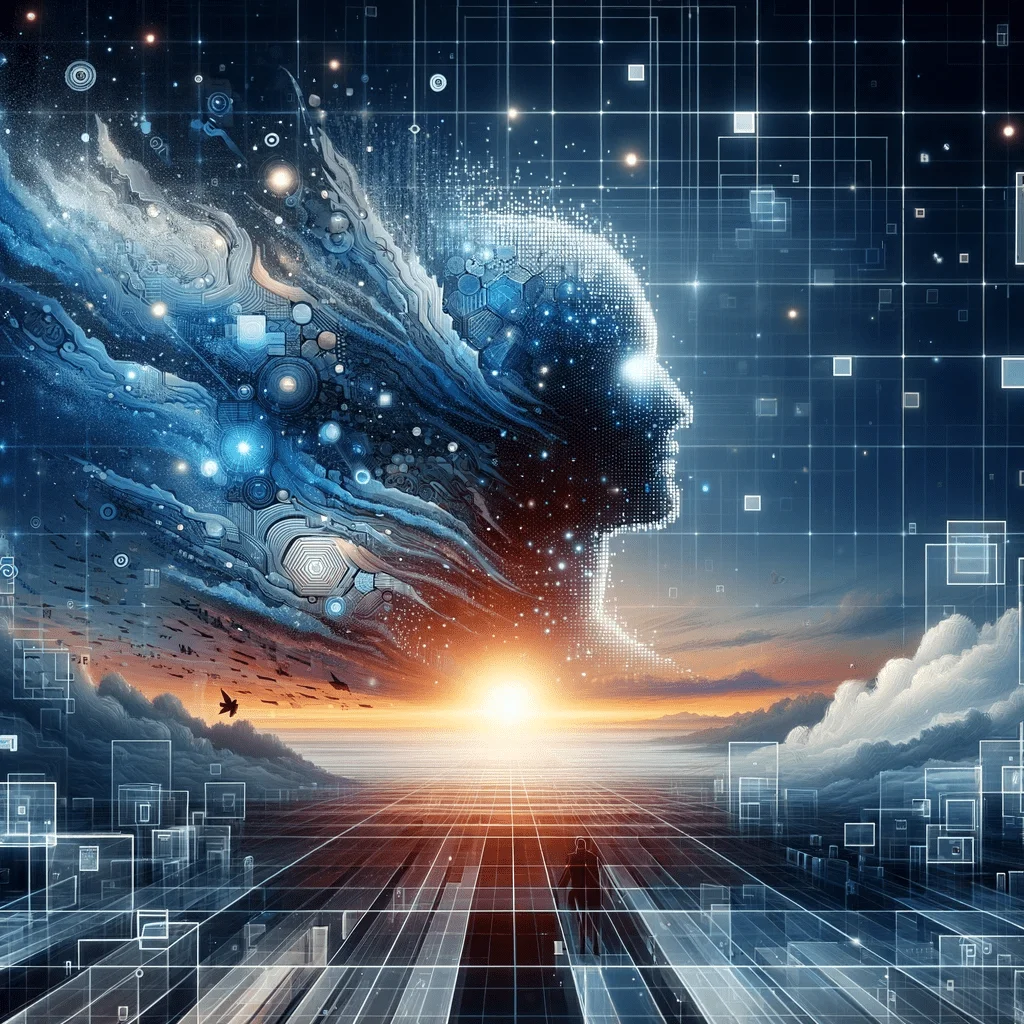The Simulated Reality Hypothesis

The Simulated Reality Hypothesis suggests that our reality might actually be a simulation created by a more advanced civilization. This idea has been explored in various forms throughout history, but it gained widespread attention in the 21st century thanks to advances in technology and the popularity of science fiction. The claim is that if it is possible for a civilization to create a simulation that is indistinguishable from reality, it is likely that such simulations would be created, and that we might actually be living in one.
According to the Simulated Reality Hypothesis, it is possible that our universe, with all its complexity and apparent randomness, is actually a product of a computer program designed by a more advanced civilization. This could explain why we have not yet discovered any evidence of other intelligent life in the universe – if they have already created a simulated universe, there would be no need for them to explore the real one.
One of the most famous proponents of the Simulated Reality Hypothesis is the philosopher Nick Bostrom, who first presented the idea in his paper “Are You Living in a Computer Simulation?” in 2003. Bostrom argues that if certain assumptions about the future of technology are true, it is more likely that we are living in a simulation than in “base reality”. However, Bostrom himself admits that his argument is based on assumptions that cannot be proven, and that the hypothesis cannot be verified or falsified.
Here are some examples:
Expert Opinions:
- Elon Musk, the founder of SpaceX and Tesla, has famously expressed his belief in the Simulated Reality Hypothesis in interviews and speeches. In a 2016 interview, he said “there’s a billion to one chance we’re living in base reality.” (Source: Recode)
- Physicist Brian Greene has discussed the idea in his book “The Hidden Reality”, in which he explores various theories about the nature of the universe. He acknowledges that the Simulated Reality Hypothesis is speculative, but he argues that it is a “serious possibility” that cannot be ruled out. (Source: The Hidden Reality)
- Philosopher David Chalmers has argued that the possibility of a simulated reality raises deep philosophical questions about the nature of consciousness and perception. He suggests that even if our reality is a simulation, our experiences are still real and meaningful to us. (Source: The New Yorker)
Media Coverage:
- In 2016, The New Yorker published an article about the Simulated Reality Hypothesis, which included interviews with Nick Bostrom, Elon Musk, and other experts. The article discussed the scientific and philosophical implications of the hypothesis, and raised questions about the nature of reality and the possibility of escaping a simulation. (Source: The New Yorker)
- The Guardian has also covered the topic, with articles exploring the possibility of a simulated reality and its cultural impact. One article suggested that the popularity of science fiction shows like “Westworld” and “Black Mirror” reflects our fascination with the idea of a simulated reality. (Source: The Guardian)
There are also other sources that promote the idea of a simulated reality, often with sensationalist or conspiratorial claims. These sources may suggest that the simulation is being controlled by malevolent forces, or that there is evidence of glitches in the matrix.
Here are ten examples of incidents that some people have interpreted as evidence of glitches in the matrix:
- The Berenstain Bears – Many people remember the popular children’s book series as being spelled “Berenstein” rather than “Berenstain”. This has led some to suggest that we are living in a simulation in which the spelling was changed.
- The Mandela Effect – The Mandela Effect is a phenomenon in which many people remember events or details differently than they actually happened. Some believers in the simulated reality hypothesis interpret this as evidence that we are living in a world that has been altered or manipulated.
- Déjà vu – Déjà vu is the feeling that one has experienced a particular situation before, even if they have not. Some people interpret this as a “glitch” in the simulation, as if their memories are being “replayed” like a video game.
- Glitches in video games – Some video game enthusiasts have reported experiencing unusual glitches or bugs that they cannot explain, leading them to speculate that they are living in a simulated reality.
- Time slips – Some people claim to have experienced time slips, in which they briefly find themselves in a different time or place. Some interpret this as a glitch in the simulation.
- Coincidences – Some people interpret unusual coincidences as evidence that they are living in a simulation that is being manipulated by a higher power.
- Ghosts and paranormal phenomena – Some people interpret paranormal phenomena as evidence that the world is not real, and that we are living in a simulation that can be manipulated by unseen forces.
- Glitches in the natural world – Some people interpret unusual natural phenomena, such as freak weather events or unexplained animal behavior, as evidence of glitches in the simulation.
- Glitches in technology – Some people interpret unusual technological malfunctions, such as dropped calls or corrupted files, as evidence of glitches in the simulation.
- Personal experiences – Some people interpret their own personal experiences, such as feeling disconnected from reality or experiencing a “shift” in their perception, as evidence that they are living in a simulated reality.


